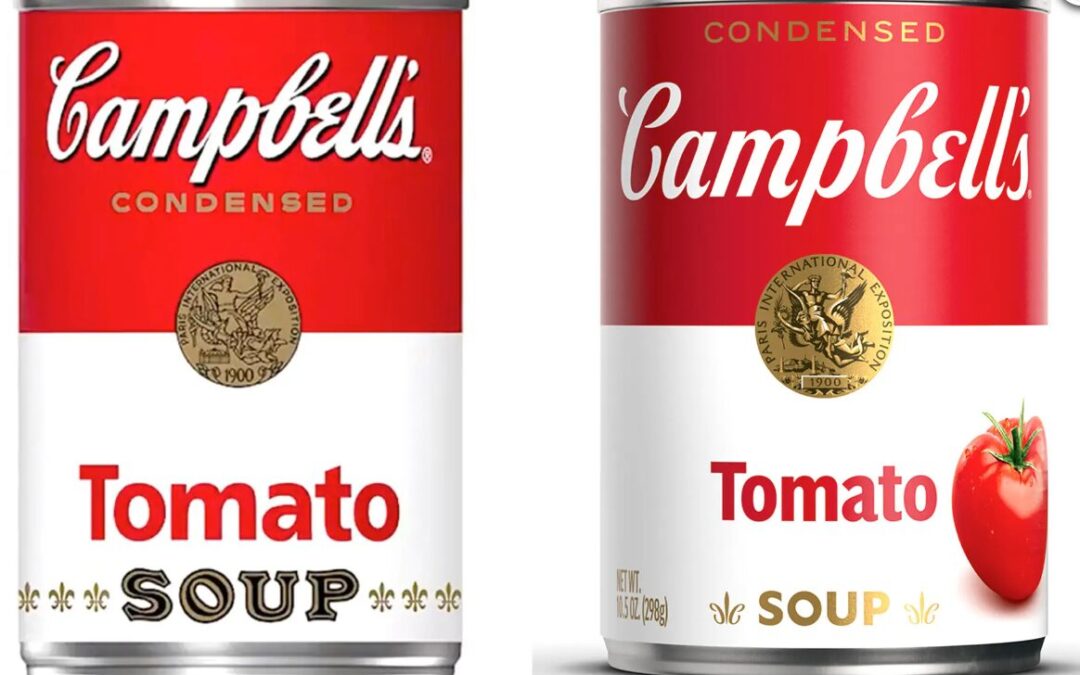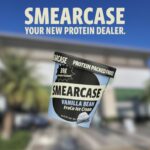A powerful tool in a marketer’s arsenal is the concept of a permission structure.
But what exactly does this term entail, and how can it revolutionize how brands engage with their audience? In this post, I’ll explore this concept and its implications for food and beverage companies.
A permission structure is the framework through which a brand interacts with its consumers.
It goes beyond traditional marketing tactics by fostering a relationship built on trust and mutual understanding. Instead of bombarding consumers with advertisements and promotions, a permission structure encourages brands to earn the right to engage with their audience by providing value and respecting their preferences.
A permission structure becomes even more crucial for a brand that creates something different and new in the food and beverage industry, such as changing a familiar logo or brand design, a plant-based hamburger, or non-alcoholic beer.
Let’s examine three compelling examples that showcase the transformative power of this approach:
The Subtle Redesign of the Traditional Campbell Soup Can
Campbell Soup Company, an iconic American brand, embarked on a journey to refresh its classic product packaging. While the traditional red and white design of the Campbell Soup can was instantly recognizable, the company understood the need to modernize its image to appeal to younger consumers. Sales were declining and younger consumers were buying other brands. Things weren’t mmm good.
Instead of imposing drastic changes, Campbell Soup Company took a subtle approach to redesigning its packaging. By retaining elements of familiarity while introducing contemporary aesthetics, such as clean lines and vibrant colors, the brand successfully captured the attention of a new generation of consumers.
In 2021, Campbell made a subtle redesign change to give consumers permission. Their overall goal was to modernize the image so it felt more fresh to a new generation of soup consumers. They eliminated the drop shadow in the logo, went from serif to san serif logo for the word soup and they added a new element like the tomato to show the food ingredients in the soup.
Younger consumers care about food quality and what they are feeding their family, so they added the ingredient image to signal that the soup has fresh ingredients – like 6 tomatoes in every can. This subtle change gives newer soup consumers, a permission structure to signal its okay to buy this brand.
And unlike the competition, they didn’t show a bowl of soup but the key ingredient in each can. There is a helpful video about this package design here from The Wall Street Journal.
Through this strategic redesign, Campbell Soup Company effectively navigated the permission structure, respecting its brand’s heritage while embracing innovation. By offering a fresh take on a beloved classic, the company earned the permission of consumers to introduce its updated product, ensuring continued relevance in a competitive market.
And this permission structure helped make Campbell’s become a growth stock again and reinvigorated by new consumers entering the Campbell soup franchise.
Plant-Based Meat Alternatives like Beyond Meat and Impossible Foods
Although 82% of all Americans eat beef, there has been a growing demand for plant-based alternatives to traditional meat products. As consumers become increasingly conscious of their health and environmental impact, brands have capitalized on this trend by offering innovative plant-based meat substitutes.
Companies like Beyond Meat and Impossible Foods have revolutionized the food industry with plant-based burgers, sausages, and other meat alternatives. These brands have garnered widespread consumer acceptance by leveraging a permission structure emphasizing sustainability, health consciousness, and culinary excellence.
Through strategic marketing campaigns highlighting their products’ benefits, such as reduced environmental footprint and cholesterol levels, Beyond Meat and Impossible Foods have gained the trust and permission of consumers to disrupt the traditional meat market. In doing so, they have carved out a significant niche for themselves and reshaped how people think about protein consumption.
But the last few years have been rough for the category. Beyond Meat’s market cap was once at $12B and is now under $500M. Impossible stock price slid by almost 90% from 2021-2023. They are struggling and restructuring their messaging using a different permission structure.
Both brands have pivoted to developing a permission structure for consumers who eat animal proteins to include plant-based proteins in their diets.
Instead of focusing on vegetarians or vegans, the more significant opportunity is to get animal protein eaters to substitute one animal protein meal with one plant-based product. The challenge is making it okay for a beef eater to occasionally eat a plant-based product—mainly because it tastes so good, not for health or environmental reasons.
New messaging and packaging focus on taste, not an anti-animal protein story. The new permission structure is trying to help these two disruptive brands find their footing.
Non-Alcoholic Beverages like Athletic Brewing Company
In the realm of beverages, craft breweries, and artisanal distilleries have thrived by embracing a permission structure centered around quality, authenticity, and innovation. Unlike mass-produced beers and spirits, which prioritize quantity over craftsmanship, craft producers prioritize the artistry and integrity of their creations.
Non-alcoholic beer, wine, and spirits are emerging, appealing to a growing community of non-drinkers. A permission structure is starting to focus on the sober curious – not just consumers who abstain entirely from drinking. Like plant-based protein brands, non-alcoholic beverages are trying to appeal to the taste of consumers who want to consume less and not give up altogether.
Athletic Brewing Company: Pioneering the Non-Alcoholic Beer Movement
ABC is leveraging a permission structure to appeal to consumers who typically drink alcoholic beverages, encouraging them to occasionally substitute with non-alcoholic options like their offerings due to taste and quality.
This company is at the forefront of the burgeoning non-alcoholic beer market, challenging the notion that non-alcoholic beverages are synonymous with compromise in taste and experience. Founded by two beer enthusiasts passionate about fitness and wellness, the brand created high-quality, flavorful, non-alcoholic beers catering to various palates.
Craftsmanship Without Compromise: Athletic Brewing Company’s mission is centered on a commitment to brewing excellence. Unlike traditional non-alcoholic beers, which often lack flavor and complexity, Athletics’ brews are crafted with the same attention to detail and quality ingredients as their alcoholic counterparts. From hop-forward IPAs to rich stouts, each beer undergoes a meticulous brewing process to ensure optimal taste and aroma.
One of Athletic Brewing Company’s key strategies is to position its products as desirable alternatives for consumers who appreciate the taste and experience of beer but may want to moderate their alcohol consumption for various reasons. By focusing on flavor-first formulations and offering diverse styles, the brand appeals to beer enthusiasts seeking non-alcoholic options without compromising taste or enjoyment.
Athletic Brewing Company recognizes that drinking alcohol is a social and cultural norm for many individuals, but it also acknowledges the importance of moderation and mindful consumption. Through its innovative lineup of non-alcoholic beers, the brand empowers consumers to make choices that align with their lifestyles and preferences, whether it’s enjoying a refreshing beverage after a workout or socializing with friends without the effects of alcohol.
Shifting Perceptions and Building Trust
By consistently delivering on its promise of great-tasting non-alcoholic beers, the Athletic Brewing Company is reshaping perceptions and challenging stereotypes associated with the category. The company is building trust and credibility within the craft beer community and beyond through word-of-mouth endorsements, positive reviews, and strategic partnerships with like-minded brands and events.
Athletic Brewing Company is establishing a permission structure that encourages consumers who typically gravitate towards alcoholic beverages to consider non-alcoholic options as viable substitutes, not just out of necessity but because they genuinely enjoy the taste and experience. By positioning its products as premium offerings that stand on their own merits, the brand allows individuals to explore new possibilities and make conscious choices that prioritize flavor, quality, and well-being.
Permission, Granted
A permission structure is a robust framework that empowers brands to establish meaningful connections with their audience. By focusing on providing value, earning trust, and respecting consumer preferences, brands can navigate the complexities of the modern marketplace and achieve sustainable success.
Whether through subtle redesigns, innovative product offerings, or authentic storytelling, embracing a permission structure can pave the way for brands to differentiate themselves and thrive in the competitive landscape of the food and beverage industry.
Is the brand you manage permitting consumers to say yes?
Connect with Jeff at The Marketing Sage Consultancy. Interested in setting up a call with me? Use my calendly to schedule a time to talk. The call is free, and we can discuss your brand and marketing needs. If you want to learn more about my new offering, The Trusted Advisor Board, you can click here to learn the details. Feel free to email me at jeffslater@themarketing sage.com or text 919 720 0995. Thanks for your interest in working with The Marketing Sage Consultancy.





